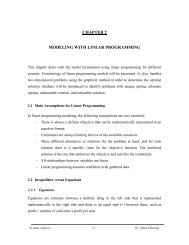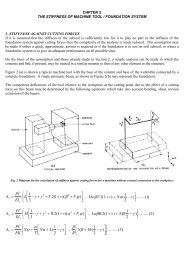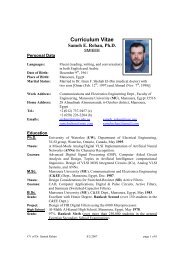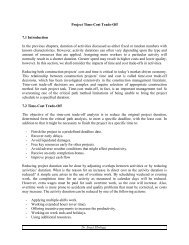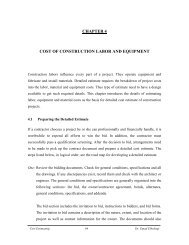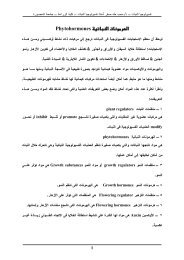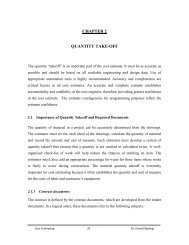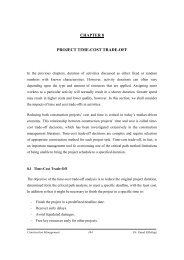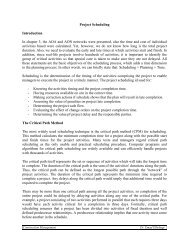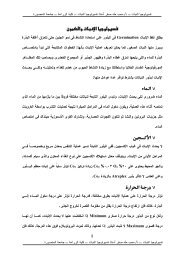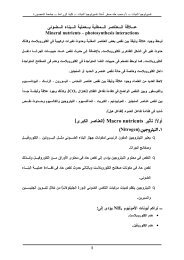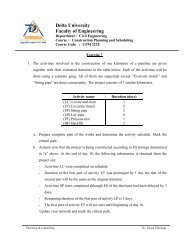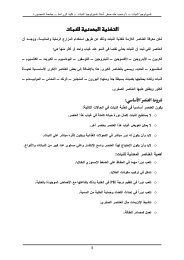Thyroid and Parathyroid
Thyroid and Parathyroid
Thyroid and Parathyroid
Create successful ePaper yourself
Turn your PDF publications into a flip-book with our unique Google optimized e-Paper software.
Laboratory Findings<br />
Hypothyroidism is characterized by low circulating levels of T4 <strong>and</strong> T3. Raised TSH<br />
levels are found in primary thyroid failure, whereas in secondary hypothyroidism<br />
TSH levels are low. Secondary hyperthyroidism is rare <strong>and</strong> can be diagnosed by<br />
measuring TSH after a TRH challenge. The TSH level is low <strong>and</strong> does not increase in<br />
response to TRH. Autoimmune thyroid disease is characterized by the presence of<br />
thyroid autoantibodies (antithyroglobulin, antimitochondrial, or anti–thyroidperoxidase<br />
[anti- TPO]). Other findings in hypothyroidism include anemia,<br />
diminished voltage with flattening or inversion of T waves on electrocardiogram,<br />
slow alpha waves with loss of amplitude on electroencephalogram, <strong>and</strong> raised levels<br />
of serum cholesterol (>300 mg/dL). In myxedema, comatose patients also have<br />
. hyponatremia <strong>and</strong> CO2 retention<br />
Treatment<br />
Treatment of hypothyroidism is simple, inexpensive, <strong>and</strong> effective. Thyroxine is the<br />
treatment of choice <strong>and</strong> is administered in dosages varying from 50 mg to 200 mg per<br />
day. Patients are instructed to take tablets in the morning, usually without other<br />
medications, or at mealtime to assure good absorption <strong>and</strong> to avoid any sleep<br />
. interference<br />
Young <strong>and</strong> otherwise healthy individuals tolerate initial starting doses of 100 mg of<br />
thyroxine per day, but elderly patients, patients with coexisting heart disease, <strong>and</strong><br />
patients with profound hypothyroidism are less tolerant of thyroxine <strong>and</strong> should be<br />
started on a lower dose, such as 25 mg to 50 mg, slowly increasing the dose over<br />
weeks to months to attain a euthyroid state. An electrocardiogram should be obtained<br />
before treatment of patients with severe hypothyroidism for comparison if chest pain<br />
develops. Thyroxine dosage is titrated against TSH levels, which should return to<br />
normal. Thyroxine supplementation also must be determined by the clinical response<br />
of the patient. Whether or not patients with subclinical hypothyroidism (normal T4,<br />
slightly raised TSH) should be treated is controversial. Evidence suggests that patients<br />
with subclinical hypothyroidism <strong>and</strong> increased antithyroid antibody levels should be<br />
treated, because they progress to more severe hypothyroidism. Patients with mild<br />
hypothyroidism may benefit from small doses of T4, as the hypercholesterolemia,<br />
. which accompanies hypothyroidism in this group of patients, is improved by therapy<br />
Patients who present with myxedema coma, in contrast to the patients with mild to<br />
moderate hypothyroidism, require emergency treatment with large doses of<br />
intravenous thyroxine (400mg) followed by 100 mg/day. These patients usually are<br />
. hyponatremic <strong>and</strong> hypocapnic <strong>and</strong> need careful monitoring in an intensive care unit<br />
THYROIDITIS<br />
( Autoimmune Lymphocytic <strong>Thyroid</strong>itis (Hashimoto's <strong>Thyroid</strong>itis<br />
Chronic lymphocytic thyroiditis, more commonly known as Hashimoto's thyroiditis<br />
or disease, after the physician who first described the condition in 1912, is an<br />
autoimmune thyroid disease <strong>and</strong> is the most common cause of hypothyroidism. It is<br />
ten times more common in women <strong>and</strong> more prevalent in the 30- to 60-year-old age<br />
group, with a prevalence of about 20 cases per 1000 women <strong>and</strong> an annual incidence<br />
of 1 to 2 new cases per 1000 women in the population. Autoimmune thyroiditis may<br />
be familial; up to 50 percent of first-degree relatives of patients with chronic<br />
autoimmune thyroiditis have thyroid antibodies inherited as a dominant trait. Chronic



